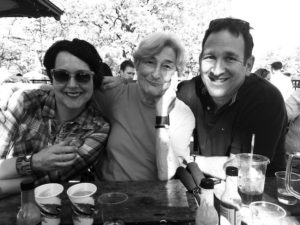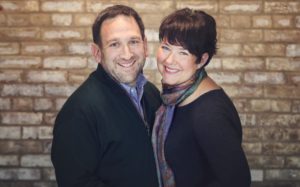Right after the diagnosis, Cassie started looking for resources online to learn more about metastatic breast cancer and to learn from the experience of others. She started following roughly six bloggers on a regular basis. (Three of those women have recently died. Such is MBC.)
On one of the blogs Cassie follows, we came across this quote:
“Oncoming death is terrible enough, but worse still, is oncoming death with time to spare, time in which all the happiness that was yours and all the happiness that might have been yours becomes clear to you. You see with utter lucidity all that you are losing.” — Yann Martel, Life of Pi
Every time we read this we cry. Every time. But, we wanted to share it because it really sums up what we are going through.
We are so grateful that we still have time together to try and enjoy life (many people with late stage cancer wind up with little to no time). Yet metastatic breast cancer is a lonely road. You can look fine on the outside but feel crappy on the inside. It can seem like life is normal when it is anything but. It is hard for people to understand. This isn’t – go through treatment and you’ll be cured. It is ongoing. Relentless. You are always living with the knowledge that unless you get hit by a bus or something crazy, that this is what will kill you. You don’t know when exactly (although 75% of those with MBC don’t live beyond 5 years.) But it’s coming.
Everyday it’s a challenge to stay positive. Our mental frame is something we work on together from the moment we wake up. It’s difficult not to focus on all that we are losing. It’s difficult to avoid asking ourselves — every time we do something fun — whether this could this be the last time? It’s difficult to explain to our friends and family what this is like day-after-day because we only see them episodically and because we don’t want talk of cancer to dominate every interaction.
The one thing that makes any of this tolerable is that we also have utter lucidity about what matters most right now. We know we want to spend our time with each other and with friends and family. We know we need to practice self-care and we know that we need to match the relentlessness of the cancer with our own relentless and sustaining love. In this way, the clarity of what we are facing is both a daily burden and a blessing as it helps reveal and keep us grounded in the things that matter most.

